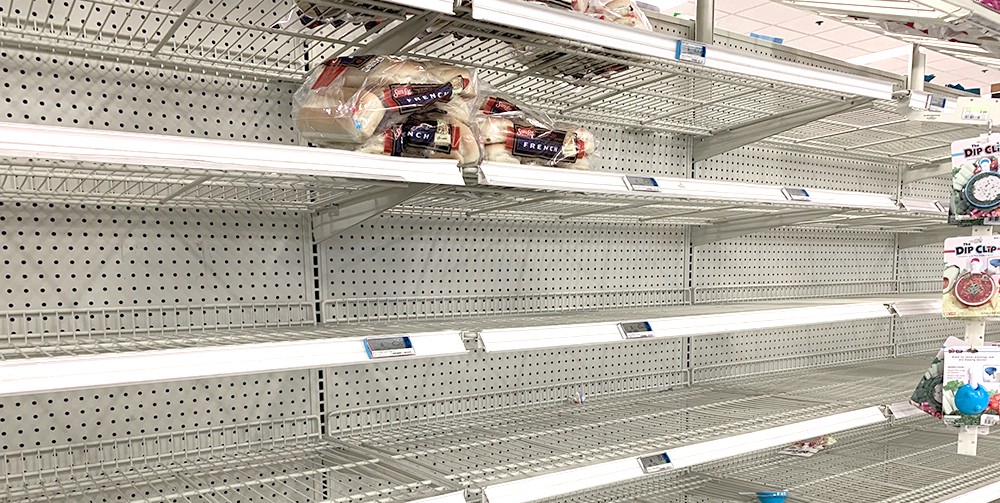With the country now declared in a national emergency, the US retail sector has been swamped by a wave of coronavirus panic purchasing.
Like countries all over the globe, American consumers have been stockpiling everyday items including toilet paper, hand sanitizer, rice and pasta, prompting many retailers to implement buying quotas while dealing with irate clientele.
Late last week that prompted the National Retail Federation and Retail Industry Leaders Association to implore customers to purchase responsibly, while some non-essential retailers have closed their doors and grocery retailers are working around the clock to restock essential supplies.
So, what should retailers consider when it comes to panic buying.
Why the panic?
According to psychologists speaking to CNBC last week, panic buying is a form of retail therapy, where consumers purchase items in a bid to manage their emotional state.
“It’s about ‘taking back control’ in a world where you feel out of control,” one psychologist noted.
Meanwhile, another reflected stress also played a further role.
“When people are stressed their reason is hampered, so they look at what other people are doing. If others are stockpiling it leads you to engage in the same behavior,” he said.
“People see photos of empty shelves and regardless of whether it’s rational it sends a signal to them that it’s the thing to do.”
In the interim, the situation is stretching the retail sector in terms of product availability, customer service, and logistics.
A plea to be reasonable

Late last week the rush on panic buying prompted the NRF and RILA to release a statement pleading with shoppers to resist the urge to hoard ad stockpile.
“Retailers – particularly grocery providers – are working with manufacturers, suppliers and government agencies to make certain essential products and services remain readily available to customers. Retail supply chains remain strong and retail employees are working around the clock to meet consumer demand,” National Retail Federation President and CEO Matthew Shay and Retail Industry Leaders Association President Brian Dodge said.
“If you don’t need an item in the next two weeks, leave it for someone who does. Hoarding and stockpiling creates unnecessary gaps between the time that someone who truly needs a product can find it back on retailers’ shelves. This is particularly important for our most vulnerable neighbors – the elderly and those who are struggling with other health issues.
“We know this is a challenging time for everyone. But by partnering against fear and doubt, shopping responsibly and following important instructions on how we can help stop the spread of this virus, we will successfully face this challenge. Together.”
Industry responds
As the NRF recently noted, the retail sector is at the coalface of coronavirus response, and as a result they are calling on the government for guidance and support.
“Retail is serving on the front lines of an effective response to this crisis – providing drive-up COVID-19 testing, e-commerce home delivery, curbside pick-up and providing other essential services. These are just a few of the examples how retailers serve American communities in this time of extraordinary need,” the NRF stated.
“NRF believes that retail business owners are in the best position to determine whether their individual stores should remain open or close.
“Retailers also intend to fully comply with government instructions. However, clarity and certainty is needed so that businesses may plan appropriately and consumers remain confident in their availability to access groceries, home and auto supplies, pet services, farm and agriculture equipment and livestock feed, and basic home health needs for children, adults and pets.”
In the event that stores are asked to close, the NRF is also calling on governments to give as much advance warning as possible, while clearly defining the difference between essential and non-essential services.
“Sudden or total closures of retail businesses can lead to increased panic by the public. This will lead to consumers overwhelming stores, eliminating on-site supplies and exhausting staff,” the NRF said.
“If closures are warranted, the government must provide as much notice and detail as possible directly to retailers so that supply chains can be adjusted to meet sudden increase in demand both before and after closure.”
A comprehensive list of resources for retailers regarding COVID-19 is available at the NRF website, while information about protecting your store from theft is available here.
